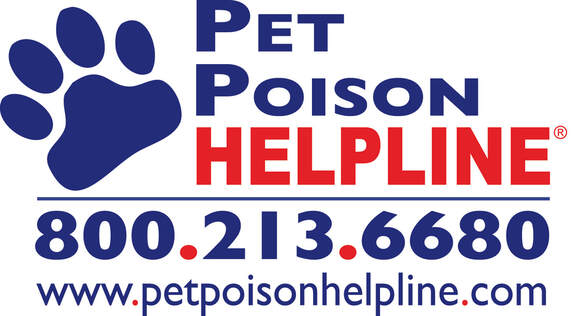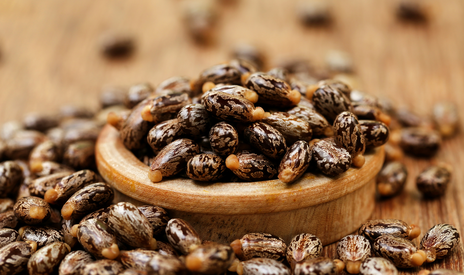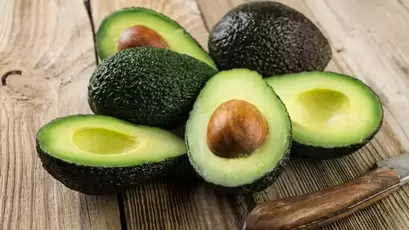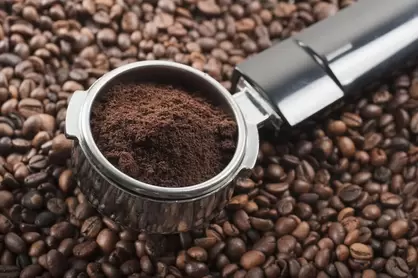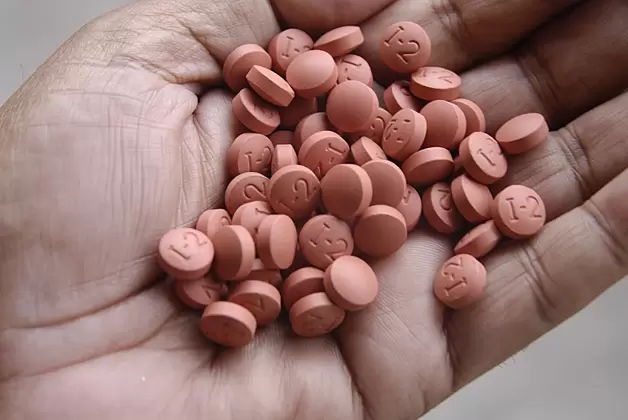*Please note: this number does not include Priority 1 patients or patients currently receiving treatment.
We treat the most critically ill or seriously injured patients first. Learn More about our Mobile Check-In & Triage polices >
We treat the most critically ill or seriously injured patients first. Learn More about our Mobile Check-In & Triage polices >
|
Believe your pet may have eaten something toxic? Unsure if what they ate is toxic? The best thing you can do is call Pet Poison Hotline ASAP at 1-800-213-6630 to talk directly to a veterinary toxicologist. ($85 incident fee, All follow-up consultations are included.) Visit their website for more info >
Remember, the sooner an exposure or poisoning is addressed, the easier, less expensive, and safer it is to treat. |
|
Flowers/Plants
|
How do I find out if a plant is toxic to pets?
Being familiar with the plants in and around your home is key in preventing your pet from consuming any plants that may be poisonous. A great resource for learning about which plants are toxic and which ones are not is located right on www.aspca.org/apcc , or https://www.petpoisonhelpline.com/ Please note, if you think your pet has been exposed to a potentially toxic plant, call the pet poison hotline.
Being familiar with the plants in and around your home is key in preventing your pet from consuming any plants that may be poisonous. A great resource for learning about which plants are toxic and which ones are not is located right on www.aspca.org/apcc , or https://www.petpoisonhelpline.com/ Please note, if you think your pet has been exposed to a potentially toxic plant, call the pet poison hotline.
|
Foods
What are the most common food hazards I should be aware of? Experts at the ASPCA Animal Poison Control Center urge you to avoid feeding the following foods to your pet: - Alcoholic beverages - Avocado - Chocolate (all forms) - Coffee (all forms) - Fatty foods - Macadamia nuts - Moldy or spoiled foods - Onions, onion powder - Raisins and grapes - Salt - Yeast dough - Garlic - Products sweetened with xylitol For information on additional foods that may be potentially hazardous, please visit our People Food archives. Is milk bad for cats?
Unless they are spoiled or moldy, milk, cheese and other dairy foods are not considered to be poisonous to pets. However, cats do not possess significant amounts of lactase, the enzyme that breaks down lactose in milk. Feeding milk and milk-based products to cats can actually cause them to vomit or have diarrhea, which in severe cases could lead to inflammation of the pancreas. For this reason, it's always a good idea to check with your veterinarian before offering any "people food" to your pets. |
Why is chocolate bad for dogs?
Chocolate can contain high amounts of fat and caffeine-like stimulants known as methylxanthines. If ingested in significant amounts, chocolate can potentially produce clinical effects in dogs ranging from vomiting and diarrhea to panting, excessive thirst and urination, hyperactivity, abnormal heart rhythm, tremors, seizures and even death in severe cases.
Typically, the darker the chocolate, the higher the potential for clinical problems from methylxanthine poisoning. White chocolate has the lowest methylxanthine content, while baking chocolate contains the highest. As little as 20 ounces of milk chocolate—or only two ounces of baking chocolate—can cause serious problems in a 10-pound dog. While white chocolate may not have the same potential as darker forms to cause a methylxanthine poisoning, the high fat content of lighter chocolates could still lead to vomiting and diarrhea, as well as the possible development of life-threatening pancreatitis, an inflammatory condition of the pancreas.
How can I check to see if my pet food has been recalled?
The Food and Drug Administration website is an excellent resource: http://www.fda.gov
Can I feed my dog a human breath mint?
It's not a good idea to feed your dog any sort of breath freshener that hasn't been formulated specifically for pets. Some breath-freshening products contain the sweetener xylitol, which has the potential to cause a sharp drop in a dog's blood sugar. This can result in depression, loss of coordination and seizures, and in some cases, liver damage. We also don't advise giving your dog breath freshening strips. Certain breath strips contain menthol, which can be irritating to the tissues of the mouth and the gastrointestinal tract. There are plenty of ways to solve your dog's breath problem without giving him products made for people. We recommend you discuss an appropriate oral hygiene program with your veterinarian.
Chocolate can contain high amounts of fat and caffeine-like stimulants known as methylxanthines. If ingested in significant amounts, chocolate can potentially produce clinical effects in dogs ranging from vomiting and diarrhea to panting, excessive thirst and urination, hyperactivity, abnormal heart rhythm, tremors, seizures and even death in severe cases.
Typically, the darker the chocolate, the higher the potential for clinical problems from methylxanthine poisoning. White chocolate has the lowest methylxanthine content, while baking chocolate contains the highest. As little as 20 ounces of milk chocolate—or only two ounces of baking chocolate—can cause serious problems in a 10-pound dog. While white chocolate may not have the same potential as darker forms to cause a methylxanthine poisoning, the high fat content of lighter chocolates could still lead to vomiting and diarrhea, as well as the possible development of life-threatening pancreatitis, an inflammatory condition of the pancreas.
How can I check to see if my pet food has been recalled?
The Food and Drug Administration website is an excellent resource: http://www.fda.gov
Can I feed my dog a human breath mint?
It's not a good idea to feed your dog any sort of breath freshener that hasn't been formulated specifically for pets. Some breath-freshening products contain the sweetener xylitol, which has the potential to cause a sharp drop in a dog's blood sugar. This can result in depression, loss of coordination and seizures, and in some cases, liver damage. We also don't advise giving your dog breath freshening strips. Certain breath strips contain menthol, which can be irritating to the tissues of the mouth and the gastrointestinal tract. There are plenty of ways to solve your dog's breath problem without giving him products made for people. We recommend you discuss an appropriate oral hygiene program with your veterinarian.
Drugs
|
Can I give my pet Ibuprofen?
In a word, NO! Ibuprofen can definitely be toxic to dogs and other pets—even in small amounts. Depending on the dose ingested, significant gastrointestinal damage or even kidney damage could result. In fact, many drugs that are beneficial to humans can be harmful or even deadly for pets. We strongly urge you to never give your pet any medication without first speaking with his or her regular veterinarian. Can I give my pet aspirin? We strongly advise owners to never give their pets any medication without first consulting with their regular veterinarian. Many drugs, including non-steroidal anti-inflammatories like aspirin, can cause serious or potentially life-threatening problems, depending on the dose involved. If you feel that your pet needs pain relief for any reason, we highly recommend that you get in touch with your veterinarian—if you have not already. Your vet can direct you regarding the best dose to use or, if necessary, can prescribe a different pain reliever. Can my pets actually chew through containers of aspirin? Unfortunately, yes. While most human medications are contained in child-proof bottles, these containers are not pet-proof. Pets can easily chew and break open packaging, so medications should always be stored in a secure cabinet above the countertop. |
Around the House
What are the most common household items I should watch out for?
Medication and products containing harsh chemicals top the list, but a few other common household hazards, like mothballs and fabric softener sheets, might surprise you. Please visit our page on maintaining A Poison Safe Home to see a list of a list of common household items, plants and foods that pet parents will want to keep curious whiskers and paws away from.
What cleaning supplies can I use that won't hurt my pets?
The key to using household cleaners in a way that is safe to your pet is to read and follow label directions for proper use and storage. If the label states, "Keep pets and children away from area until dry," those directions should be strictly adhered to in order to avoid potential problems. Many household cleaners can be used safely when the directions on the label are followed exactly. Products that contain bleach can be very effective in safely disinfecting certain household surfaces when used appropriately, but if your pet is exposed to them, they can cause an upset stomach, drooling, vomiting or diarrhea. There is even a danger of severe oral burns if ingested in a high-enough concentration. Please be aware that some detergents can produce similar signs in pets, and cats can be particularly sensitive to certain ingredients, such as phenols.
Are any types of cat litter poisonous to cats?
Most kitty litter products are made out of organic materials such as bentonite clay or silica. These substances are considered to be chemically and biologically inert, and do not pose a toxic concern for pets. Cats may ingest small amounts of litter when grooming themselves after using the litter box, and these amounts pass through the digestive tract easily without problems. However, if an animal ingests a very large amount of litter (as can happen when a dog "cleans out" the litter box), gastrointestinal upset, constipation, or in rare cases, intestinal obstruction could potentially occur.
Is it safe for my pet to drink from the toilet?
Bacterial-related gastrointestinal problems could occur from drinking stagnant toilet water, so it is a good idea to discourage your dog from imbibing from the commode.
Special note for those who use drop-in toilet bowl cleaning tablets: If you follow label directions, most toilet bowl cleaning tablets would not be expected to cause problems beyond minor stomach upset, should a dog take a drink out of the diluted water in the toilet bowl.
What are the most common household items I should watch out for?
Medication and products containing harsh chemicals top the list, but a few other common household hazards, like mothballs and fabric softener sheets, might surprise you. Please visit our page on maintaining A Poison Safe Home to see a list of a list of common household items, plants and foods that pet parents will want to keep curious whiskers and paws away from.
What cleaning supplies can I use that won't hurt my pets?
The key to using household cleaners in a way that is safe to your pet is to read and follow label directions for proper use and storage. If the label states, "Keep pets and children away from area until dry," those directions should be strictly adhered to in order to avoid potential problems. Many household cleaners can be used safely when the directions on the label are followed exactly. Products that contain bleach can be very effective in safely disinfecting certain household surfaces when used appropriately, but if your pet is exposed to them, they can cause an upset stomach, drooling, vomiting or diarrhea. There is even a danger of severe oral burns if ingested in a high-enough concentration. Please be aware that some detergents can produce similar signs in pets, and cats can be particularly sensitive to certain ingredients, such as phenols.
Are any types of cat litter poisonous to cats?
Most kitty litter products are made out of organic materials such as bentonite clay or silica. These substances are considered to be chemically and biologically inert, and do not pose a toxic concern for pets. Cats may ingest small amounts of litter when grooming themselves after using the litter box, and these amounts pass through the digestive tract easily without problems. However, if an animal ingests a very large amount of litter (as can happen when a dog "cleans out" the litter box), gastrointestinal upset, constipation, or in rare cases, intestinal obstruction could potentially occur.
Is it safe for my pet to drink from the toilet?
Bacterial-related gastrointestinal problems could occur from drinking stagnant toilet water, so it is a good idea to discourage your dog from imbibing from the commode.
Special note for those who use drop-in toilet bowl cleaning tablets: If you follow label directions, most toilet bowl cleaning tablets would not be expected to cause problems beyond minor stomach upset, should a dog take a drink out of the diluted water in the toilet bowl.
What are the dangerous substances pets should avoid during the Christmas holidays?
Holiday hazards include:
- Christmas tree water, which may contain fertilizers and bacteria that can upset the stomach if ingested
- Electrical cords
- Ribbons or tinsel, which can become lodged in the intestines and cause intestinal obstruction—this most often occurs with kittens
- Batteries
- Glass ornaments.
-Poinsettias
Of course, there are usually a lot of delicious goodies floating around during the holidays, too—be sure to keep human treats inaccessible to your pets.
Holiday hazards include:
- Christmas tree water, which may contain fertilizers and bacteria that can upset the stomach if ingested
- Electrical cords
- Ribbons or tinsel, which can become lodged in the intestines and cause intestinal obstruction—this most often occurs with kittens
- Batteries
- Glass ornaments.
-Poinsettias
Of course, there are usually a lot of delicious goodies floating around during the holidays, too—be sure to keep human treats inaccessible to your pets.
What are some dangers pets face during the cold winter weather?
The cold weather can bring about some surprising chemical dangers involving ice-melting products and antifreeze.
- After your dog's been outside in the sleet, snow or ice, thoroughly wipe off his legs and stomach. If he licks his paws, he could ingest salt, antifreeze or other potentially dangerous chemicals. His paw pads may also bleed from snow or encrusted ice.
- Antifreeze, while essential to a car's cooling system, is very dangerous to your pets if they are exposed to it. Be sure to thoroughly clean up any spills from your vehicle, and consider using products that contain propylene glycol rather than ethylene glycol.
For more helpful information, please check our Top Ten Cold Weather Tips.
What are some hazards pets face during the warm weather?
Sunbathing, pool parties, barbecues and fleas? ASPCA experts offer the following tips to keep your pets safe when the mercury rises:
- Keep citronella candles, insect coils and oil products out of reach. If ingested, they can produce stomach irritation in pets, and possibly even central nervous system depression.
- Do not apply sunscreen or insect repellent product to your pet that is not labeled specifically for use on animals. The ingestion of sunscreen products can result in drooling, vomiting, diarrhea, excessive thirst and lethargy in pets.
- Always keep matches and lighter fluid out of your pets' reach. Certain types of matches contain chlorates, which if swallowed could result in difficulty breathing, or kidney disease in severe cases.
- Never leave alcoholic drinks unattended where pets can reach them. Alcoholic beverages can be poisonous to pets and if ingested, the animal could become extremely weak, severely depressed or could go into a coma.
- Cats react very differently than dogs to some insecticides; because of this, some flea-control products that are safely used on dogs, particularly those containing permethrin, can be deadly to cats, even in small amounts.
More information is available at www.aspca.org
The cold weather can bring about some surprising chemical dangers involving ice-melting products and antifreeze.
- After your dog's been outside in the sleet, snow or ice, thoroughly wipe off his legs and stomach. If he licks his paws, he could ingest salt, antifreeze or other potentially dangerous chemicals. His paw pads may also bleed from snow or encrusted ice.
- Antifreeze, while essential to a car's cooling system, is very dangerous to your pets if they are exposed to it. Be sure to thoroughly clean up any spills from your vehicle, and consider using products that contain propylene glycol rather than ethylene glycol.
For more helpful information, please check our Top Ten Cold Weather Tips.
What are some hazards pets face during the warm weather?
Sunbathing, pool parties, barbecues and fleas? ASPCA experts offer the following tips to keep your pets safe when the mercury rises:
- Keep citronella candles, insect coils and oil products out of reach. If ingested, they can produce stomach irritation in pets, and possibly even central nervous system depression.
- Do not apply sunscreen or insect repellent product to your pet that is not labeled specifically for use on animals. The ingestion of sunscreen products can result in drooling, vomiting, diarrhea, excessive thirst and lethargy in pets.
- Always keep matches and lighter fluid out of your pets' reach. Certain types of matches contain chlorates, which if swallowed could result in difficulty breathing, or kidney disease in severe cases.
- Never leave alcoholic drinks unattended where pets can reach them. Alcoholic beverages can be poisonous to pets and if ingested, the animal could become extremely weak, severely depressed or could go into a coma.
- Cats react very differently than dogs to some insecticides; because of this, some flea-control products that are safely used on dogs, particularly those containing permethrin, can be deadly to cats, even in small amounts.
More information is available at www.aspca.org

